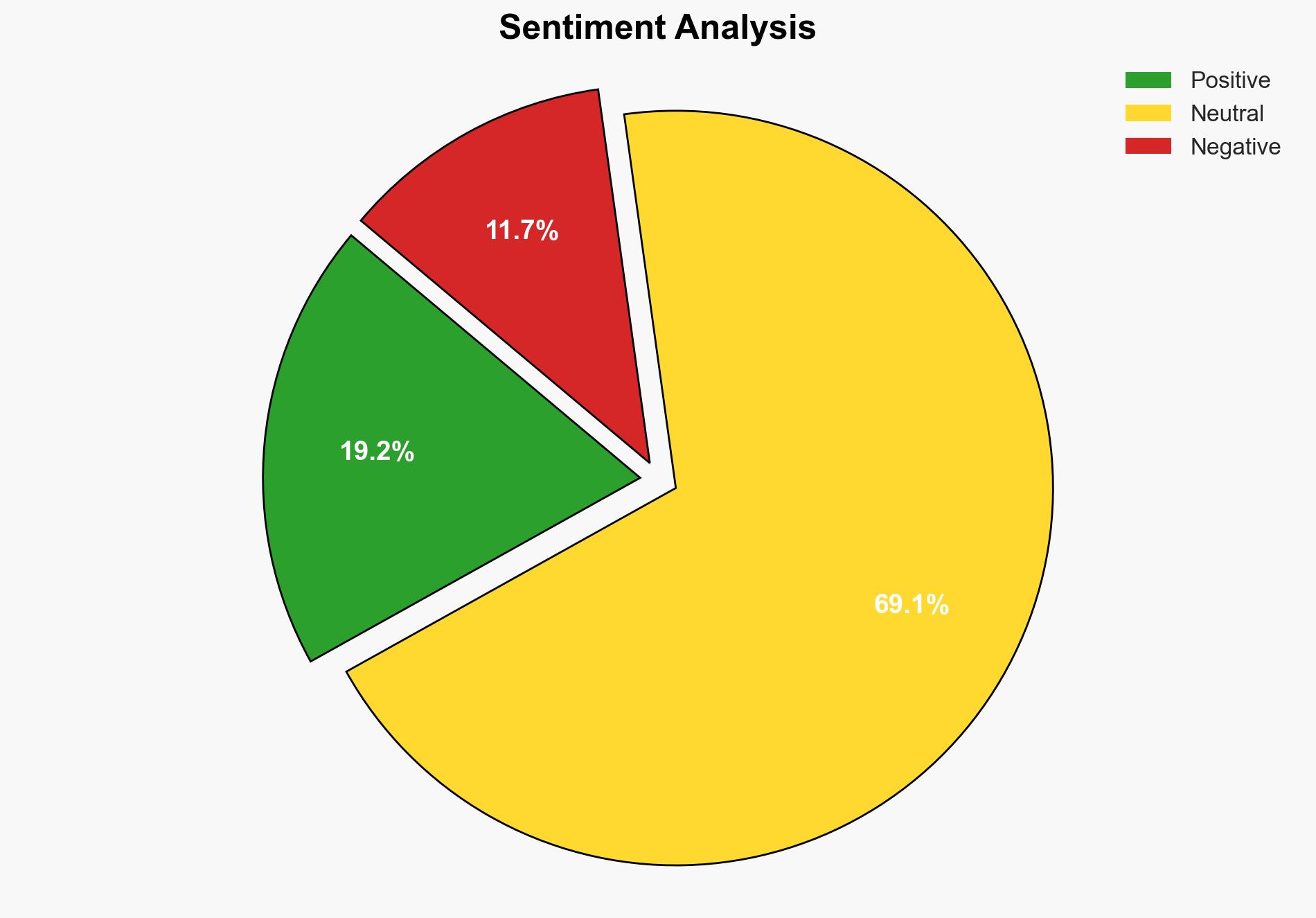OpenAI seeks Trump administration’s help in AI fair use debate – TechSpot
Published on: 2025-03-15
Intelligence Report: OpenAI seeks Trump administration’s help in AI fair use debate – TechSpot
1. BLUF (Bottom Line Up Front)
OpenAI is seeking assistance from the Trump administration to address ongoing copyright disputes related to AI training data. The company argues that classifying AI training as fair use is crucial for maintaining a competitive edge against China. The outcome of this debate could significantly impact AI development, copyright law, and international competitiveness.
2. Detailed Analysis
The following structured analytic techniques have been applied for this analysis:
General Analysis
OpenAI is embroiled in legal challenges over whether AI training constitutes fair use. The company contends that AI models do not replicate copyrighted works for public consumption but instead extract patterns and insights to generate new content. This aligns with the principles of fair use by creating new works without diminishing the commercial value of existing ones. OpenAI warns that restrictive copyright strategies could hinder American AI companies, especially in competition with Chinese firms.
3. Implications and Strategic Risks
The outcome of this legal debate holds significant implications for the AI industry, copyright law, and international competitiveness. If AI training is not classified as fair use, it could lead to increased compliance costs and stifle innovation. This poses a risk to national security and economic interests, as the U.S. could fall behind in AI advancements compared to countries like China. Additionally, a patchwork of state regulations could create legal uncertainties for AI companies.
4. Recommendations and Outlook
Recommendations:
- Advocate for federal legislation that preempts state regulations to provide a unified legal framework for AI training.
- Encourage public-private partnerships to facilitate knowledge exchange and liability protection for AI companies.
- Promote international discussions on AI and copyright to prevent restrictive legal frameworks that could hinder innovation.
Outlook:
In the best-case scenario, AI training is classified as fair use, fostering innovation and maintaining U.S. leadership in AI. In the worst-case scenario, restrictive regulations stifle AI development, leading to a loss of competitive advantage. The most likely outcome is a balanced approach that safeguards intellectual property rights while allowing for AI innovation.
5. Key Individuals and Entities
The report mentions significant individuals and organizations but does not provide any roles or affiliations. Key individuals include OpenAI and Trump administration. Key entities include Thomson Reuters, Westlaw, and European Union.





